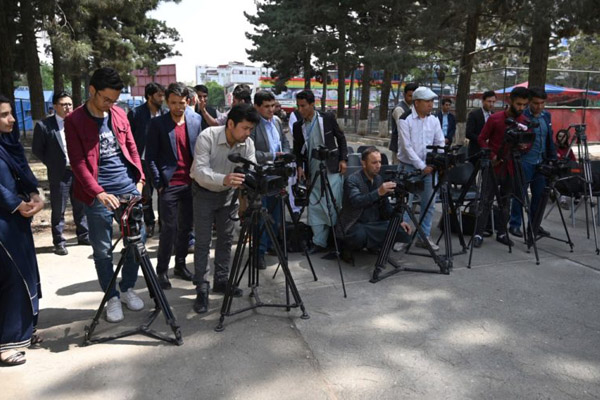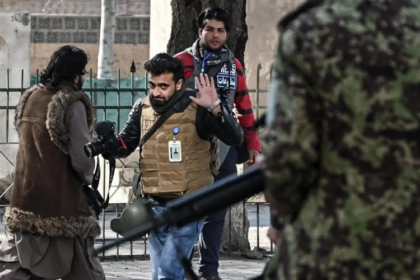RASC News Agency: As Afghanistan approaches the fourth grim anniversary of the Taliban’s return to power, the Afghanistan Journalists’ Center has sounded an alarm over the regime’s intensifying war against free expression. In the past year alone, the organization has documented no fewer than 190 deliberate violations of press freedom a chilling escalation from the previous year and a stark reminder that the Taliban’s censorship apparatus is not merely intact but expanding at a dangerous pace. The report details how the Taliban have weaponized their draconian “Promotion of Virtue and Prevention of Vice” law, coupling it with a fresh wave of suffocating media directives to systematically dismantle independent journalism. The past twelve months have seen 145 cases of direct threats and intimidation aimed at journalists and media houses, along with 45 arrests many carried out without due process, legal representation, or transparency.
Among the regime’s most sweeping assaults was the forcible closure of 32 state-owned television stations and 12 private TV networks, coupled with the imposition of a blanket ban on broadcasting or publishing images of living beings an edict designed not only to erase culture but to extinguish visual storytelling altogether. Entire television networks, stripped of operational capacity, have collapsed, surviving only through their FM radio counterparts still monitored and censored by Taliban enforcers. The crackdown extends beyond television. The Taliban have shut down five radio stations, two television channels, two press advocacy organizations, and a major news agency, branding them “anti-Taliban” or accusing them of “collusion with foreign entities” charges widely viewed as politically motivated. In a calculated display of coercion, some outlets were permitted to reopen only after signing written pledges to adhere strictly to Taliban propaganda guidelines, forfeiting their editorial independence in exchange for survival.
The persecution of women in journalism has reached alarming levels. Female editors, anchors, and station owners have faced targeted harassment, bureaucratic obstruction in license renewals, and in many cases, forced closure of their outlets. This gender-specific suppression is rapidly erasing women’s voices from the national conversation, further narrowing Afghanistan’s already suffocated public discourse. The Afghanistan Journalists’ Center warns that this relentless campaign is not simply an attack on media institutions it is an assault on the Afghanistani people’s right to truth, civic participation, and mental well-being. Silencing diverse voices, it cautions, will leave society vulnerable to propaganda, disinformation, and authoritarian control, cementing the Taliban’s monopoly over the national narrative.
Over the past three years, the regime’s hostility toward independent media has remained consistent and brutal: journalists have been murdered, abducted, beaten, and detained in secret locations. The pattern is deliberate, systematic, and calculated to extinguish not only dissent but the very infrastructure that enables it. In essence, the Taliban are executing a policy of “total narrative monopoly” a state-engineered information blackout in which every headline, broadcast, and image is filtered through the lens of Taliban ideology. The consequences are catastrophic: the country’s cultural memory is being rewritten, critical debate is disappearing, and Afghanistan is being pushed into an intellectual darkness unseen in its modern history.
If left unchecked, this campaign will not only suffocate Afghanistan’s media ecosystem but will also undermine the democratic aspirations of an entire generation erasing decades of hard-won gains in press freedom and plunging the nation into a future where truth itself is an outlaw.






